Meredith Sue Willis's
Books for Readers # 194
December 11, 2017
When possible, read this newsletter online in its permanent location.
Back Issues MSW Home About Meredith Sue Willis Contact
.
Meredith Sue Willis's Books for Readers # 194
In Memoriam:
Thomas E. Douglass, who wrote
on Appalachian literature and writers, andHalvard Johnson, poet and cofounder
of Hamilton Stone Editions and The Hamilton Stone ReviewIn This Issue of Books for Readers:
Special Request: Can anyone read Chinese?
Reviews
(By MSW unless otherwise noted)The Book of Norman by Allan Appel
Don't Mind Me I Just Died
The Communist and the Communist's Daughter: A Memoir by Jane Lazarre
New Children's Picture Books from Belinda Anderson
Short Takes on:
Rosemary: the Hidden Kennedy Daughter
Biography of Hannah Arendt
Phyllis Moore on Lee Maynard's last novel
World War I and the Visual Arts
Shelley Ettinger on Rivers Solomon's An Unkindness of Ghosts
Fay by Larry BrownNew Anthology from Mountain State Press
Links for Writers
Correction from Issue #193
Notes on Madison Smartt Bell and Nathan Bedford Forrest
by Phyllis Moore and Gerald SwickThings to Read & Hear Online
Announcements and News
Irene Weinberger Books
It's holiday season, and I'm asking everyone to think about giving books as gifts--
books from independent bookstores (see clickable logo right for a store near you) and small presses. If you are looking for books for young children, don't miss Belinda Anderson's list of good new children's picture booksin this issue.
Some of my favorite small presses that have published my work at some point, in anthologies or in book form, include Montemayor Press, West Virginia University Press, Ohio University Press, Bottom Dog Press, and the small nonprofit Mountain State Press which has a brand new anthology out, Voices on Unity: Coming Together, Falling Apart.There are tons of excellent small presses, and they are publishing some of the most interesting work by contemporary writers. One place to get an idea of the variety is at Newpages.com where you can survey the riches to your heart's content. Two presses I am involved with on the editorial side are Hamilton Stone Editionsand Irene Weinberger Books. Surprise your gift recipients!Here are some new anthologies from small presses:A few reviews of recent small press/university press books:The Book of Norman by Allan Appel
I love the concept of this book: an inveterate gambler dies and his two sons, one a rabbinical seminary drop-out, the other a near-convert to Mormonism, battle for his soul. It's a comedy, but a comedy with lots of Biblical and other research behind it. For example, you meet various types of Jewish angels and learn about the colorful cosmology and afterlife of Mormonism.The narrator is young Norman Gould, and the time is 1967, with a background of the Vietnam War and anti-war protests and the Watts riots. Norman is aware of these things, but more engrossed in his homecoming toLos Angeles where he gorges on enormous amounts of treyf foods while working as a counsellor in a Jewish day camp,alongside his brother who wants him, Norman, to break it to their mother that he is about to become a Mormon. Norman, of course, is hiding from his family that he has dropped out of seminary.
The struggle between the brothers is painful and funny, and Norman is desperate for meaning, constantly berating himself for a lifetime of achievement within the framework of Jewish religious training that he now feels was a fraud.The family includes the deceased father who died with cards in his hand, and their mother who kept the family together by working double shifts as a waitress in a Jewish pastrami palace. There is a grandmother, too, the father's mother, who lives with them and is lovingly cared for in her old age, speaking almost only Yiddish except for some baseball terms she uses to interact with her grandsons. You end the novel with a lot of affection for all these people--including the mother's new boyfriend, the despised temple fund-raiser the boys call "the Foot." Everyone in this novel– unusual in modern American fiction– is morally a little better at the end than they are at the beginning. Norman says Kaddish for his father three times a day, deep and heartfelt, and stops gaining weight on pork chops and cheeseburgers.The book too, maybe even more unusually in contemporary novels, ends even better than it began. The first two thirds are probably too hard on Norman, who is, after all, young and confused and high on his newly-abstaining brother's stash of wine-soaked joints. The ending isn't about returning to old beliefs (Norman's brother really does leave Judaism and goes on to become a Mormon in good standing and start a nice Mormon family). It's more about learning to love your brother in spite of his meshuga religion– and loving your mother who marries someone you never liked.Meanwhile, the gorgeous Israeli maybe-angels do some magic before heading off to their next assignment, either fighting in the desert or saving more Jewish souls. More importantly to me, though, is that while their prowess is may be truly angelic or may only be Norman's dope-dreamy exaggerations, it isn't really necessary to the beginning of wisdom and the acceptance of the mysteries of our universe..
Don't Mind Me, I Just Died by Caroline Sutton
The heart of this book of essays is several pieces about the author's mother dying, but surrounding them are many other wonderful stories at once revealing and reticent, quiet but with plenty of color and event. They tell of the suicide of a youngfriend's boyfriend; seventies road trips; tennis; and the lives and deaths of beloved dogs. Sutton's father relates his harrowing war stories with an objectivity that creates as much amazement as the experiences themselves.
One of my favorites is called "Left Unhung," which is a wonderful tour of nineteenth and twentieth century paintings in a museum, one after another, with their meanings explored, what they meant to the narrator as a child, what they mean to her now. Has anyone ever been this honest about the experience of being in a museum? We're usually too busy trying to view the art in the correct way, or to sound smart, even to ourselves.Sutton's mother is mentioned in various contexts, and bit by bit we begin to circle around a rich portrait of her living as well as her dying (which she does as so many of us do and will, in a nursing home). In a typical indirect but moving association, Sutton gives an echo of the mother in the little dog Pokie who appears first just as a part of the mother's life, then gets his own story at the end.It is an organically organized and deeply intelligent collection that brings you close to a world of love and delight--and quiet suffering. Things are sometimes told obliquely, but always with inspiring grace and intensity.
Jane Lazarre's The Communist and the Communist's Daughter: A Memoir
Born in Kishinev, famous for pogroms at the beginning of the twentieth century, Jane Lazarre's father Bill and his immediate family emigrated to the United States when he was a teenager. He learned English with great speed, worked, joined the Communist Party, did a stint in prison, and always read widely, but especially Marx, Lenin, Dostoevsky, Theodore Dreiser and other masterful critics of the status quo.In fact, Bill Lazarre's reading list, and what he and his daughters read together and discussed, is one of the threads that binds the book together. For this is a memoir about people who constantly think and discuss, and feel as passionately as they think.As a young man, Bill went to Spain with the International Brigades to fight fascism, and this remained one of the high points of his life. His life in the Party back in the United States was also rich: he wrote and spoke publicly and taught, but the heroic days were gradually undermined by intra-party struggles as well as rumors that justice was not being meted out in the Soviet Union. He was eventually thrown out of the party for reasons associated with the last days of Stalin when any disagreement was tantamount to betrayal. The ideology he had built his life around for its clear path to a better world no longer seemed to work.After losing his Party positions, he had trouble finding work that would support him and his two daughters. Harassed by the FBI and eventually taken before the HUAC committee, he stood firm and revealed nothing to implicate his old comrades, in spite of a real danger of deportation, even though he was an American citizen.In his final years, he found some satisfaction in a quiet life, a worker hired by former comrades, reading all the papers, finding a second love. He also had a little time with his first grand-child, Jane's oldest son whose heritage is half Eastern European Jewish radicalism and half southern African-American. This becomes part of Bill Lazarre's hope for the future--for a time when international union will be the human race.The author, meanwhile, as she grew up--and this is almost as much her story as his--turned to psychoanalysis and literature as a language for finding meaning in the complexities of life.Telling these things about this book, of course, give no hint of its texture: it attempts and largely succeeds in creating a nuanced view of Bill Lazarre's emotional and political experience and the world he lived and suffered in, which was also the world the author grew up in. He has his heroic days recruiting workers for the righteous cause, and he has personal catastrophes when both his adored wife and then a second love die of virulent breast cancer. The author creates his life using his letters and notes, stories told and books written by his old comrades, and she also imagines scenes of him as a boy in Kishinev and alone in his apartment at the end of his life.She also writes about what it was like to be a Communist Child, when the families gathered in living rooms over food and discussion, with the children loved by all the adults-- a hint, perhaps of the yearned for Utopia of equality and camaraderie.The book is organized in generally chronological sections, but within those sections, it works by association, by retelling dreams, by including transcripts of and commentary on court proceedings. It is a collection of materials, insights, incidents, and imagery formed into a brilliant whole by Jane Lazarre's skill and patience.It ought to be a classic of twentieth century American life.Belinda Anderson Recommends Picture Books for Children.
Picture books make wonderful presents. The ingredient all of my picks have in common is that they’re fun – lessons and insights are bonuses. The following books were all new additions this year at my local library:When a picture book begins with images of a sheep bathing in a tub, then blow-drying her wool, you know you’re dealing with an image-conscious ewe. But you also know what happens when shearing season arrives. “Now you’ll feel nice and cool,” says the herd’s sheep dog, who also doubles as the flock’s barber. Lola is very unhappy with the results – at first. But she learns that change can bring something new and good in The Sheep Who Hatched an Egg, engagingly written and illustrated by Gemma Merino.The Bake Shop Ghost is a fun romp with a bit of mystery. It was written by Jacqueline K. Ogburn and ghostily illustrated in swirling colors by Marjorie Priceman. Both author and artist are avowed cake eaters.The 20th Century Children’s Book Treasury is just that – more than 300 pages from 44 classic picture books and stories, selected by Janet Schulman. The selections include Madeline, The Snowy Day, Make Way forDucklings, The Cat Club, Amelia Bedelia, The Story of Ferdinand and Miss Nelson is Missing! The stories are accompanied by reproductions of the original illustrations.The young narrator of the picture book Still Stuck, by Shinsuke Yoshitake, is having one of those days. He decides he can take his shirt off by himself. He gets stuck and starts imagining what would happen if he was stuck forever. He thinks about asking his mom for help, then decides maybe it would be a good idea to try taking his pants off first. How many of us have thought, bad idea, five seconds after doing something that makes bad go to worse? Fortunately, Mom intervenes.Breaking News: Bear Alert, by David Biedrzycki, is a hilarious picture book romp with bears who have been awakened early from hibernation and head downtown.Author Matt Lamothe has come up with a picture book showing kids around the world at school and home in This is How We Do It: One Day in the Lives of Seven Kids from around the World. The large-format picture book follows the lives of seven real families throughout the day. In Italy, their breakfast is toast with Nutella spread, a cup of egg yolks mixed with sugar and milk, and tea. In Peru, the family has fried rice with chicken and peppers, sliced boiled plantains, and hot milk.I truly enjoyed these books myself and highly recommend them.
Briefly Noted & Books Received (notes by MSW if not otherwise noted)
Phyllis Moore says of Lee Maynard's final novel, "A Triumph of the Spirit arrived in my mail (thank you Amazon) and it proved to be another emotional high octane ride. If you are a Maynard fan, you will recognize pieces from his other books. They fit. He found a fitting way to wrap up his adventures and bid us goodbye."Shelley Ettinger recommends Rivers Solomon's An Unkindness of Ghosts. She rated it 5 stars on Good Reads and added, "More like a 4.5 but I'm rounding up because there's so much to love about this novel. I liked it a lot, and there was a lot about it I loved. In my endless, endlessly frustrating search for truly fine literature that can be categorized as SF, it's cause for celebration when such a rarity arrives. Rivers Solomon is a writer to watch, that much is clear. Can't wait for their next book." (From Goodreads)I read Rosemary: The Hidden Kennedy Daughter by Kate Clifford Larson as an ebook borrowed from the library. Rosemary, of course, was the Kennedy who was developmentally disabled. The lobotomy part was just awful, and the Kennedies were pretty awful themselves in a lot ways. Still, you can't read this and not understand the public fascination with them.Rosemary, although always slow at reading and school, was also well-loved, carefully protected, and--judging from the photos--very attractive. She was even presented to the Queen of England, although family members conspired to keep her from being in conversations with strangers very long. In other words, she had a life, but was apparently as she got older sometimes angry and hard to handle.So Papa Joe decided she needed her frontal lobe snipped, and she she ended up with physical disabilities and far less mental ability than she started with. Grim story.Had she been the child of a poor family, would her story have had an even worse outcome? Or perhaps better?Hannah Arendt: A life in Dark Times by Anne Heller was very satisfying to me. I've read a little Arendt, mostly essays in The New York Review of Books and lots of references to her, but I'd never known much about her--about her relationship with Martin Heidegger, about the brouhaha over Eichmann in Jerusalem, or about her in and out relationship with Israel and Zionism. Short book, very informative.World War I and the Visual Arts by Jennifer Farrell is an issue of the Metropolitan Museumbulletin about art in Europe during the First World War. There are some propaganda posters (see the top of this newsletter), some examples of artists expressing patriotism from both sides--all just as the war began. Some of the artists actually went to war and were horrified, and many of them turned to anti-war art.There are wonderful images by artists like Grosz, Beckmann, and Kollwitz, but also artists you don't usually associate with war imagery like Singer and Hartley and Marsden, even Bonnard.I I admired Larry Brown's Joe a lot (see Issue # 193), but Fay seems wrong-headed to me in many ways. Some of it is excellent: Brown is a writer who can pretty much do exactly what he wants to do. He uses a flat affect and Raymond Carver declarative sentences that have a nice rhythm, and he knows a lot about certain parts of the worlds and certain kinds of places and people, and knows how to bring them to life.The fault for me is two-fold: first, he tends to use killing people with guns as a substitute for plot development. There is a sort of elementary school trick of ending threads of story and characters with "And then they all died." Preferably by explosion,The other fault is Fay herself, who is interesting in the early part when she is running away and a complete innocent with no ID (I kept worrying about that) barely able to read, not knowing how to use a pay phone or a dozen other things. In that part, her vast ignorance and vulnerability build incredible tension. She barely gets away from a crowd of nasties in a filthy trailer without being raped. So she's a survivor, and that works. Even when she does her first killing. I was reading eagerly to see what would happen.But in the end, Fay becomes more the object than the subject of the story. When he did go inside Fay, Brown felt to me like he was slumming inside the little hillbilly Lolita. She becomes a temptress, and men end up dead.The main focus turns to the the men around her. There's Sam, a good hearted fortyish cop who falls in love with her and tries to protect her, and there's the wildly off kilter and just-this-side-of sociopathic Aaron, who in his own twisted way also falls in love with her.The final section is a drilling down, the three main characters coming together for an explosion, which Brown delivers, and I didn't really believe, although I couldn't stop reading till it was over.I seem to be going through Anthony Trollope's Barchester novels again--it is, after all, Victorian novel season when the storm windows move into place, and the chill winds blow. This one is Barchester # 4: Framley Parsonage. Not my favorite of the series, but it improves as it goes along. It has, like Trollope's Phineas Finn novels, a lot too much elaborate playfulness about standing for parliament and parliamentary antics and the political parties, which he calls the Gods and the Giants.The women are the best characters. Lucy Robards is small and "brown," but wins Lord Lufton's heart in spite of having no money. In many ways, even more interesting is Lord Lufton's mama, who is peremptory and conservative but also needs to be loved, and is able to change her mind.I haven't mentioned the putative hero, Reverend Mark, who I don't like much. He is Lucy's big brother, and he gets caught up on a worldly path that ends him up in dire financial straits, He chooses to suffer passively, and is of course saved by his friends. Oh, and I like the feckless MP who borrows money from everyone he meets, and his sister, who loves only him. So maybe it's one of my favorite Barchester novels after all.Eragon by Christopher Paolini is a popular dragon fantasy recommended to me long ago, and I finally took a read. It was written by the still-adolescent home-schooled Paolini, published by his parents, then picked up by a big press. It is lots of fun, bull of the energy and angst of youth. The hero Eragon is a somewhat inchoately angry and suffering teen-- well, he has some reasons: most of the people loves get killed or separated from him. Just the same he unnecessarily opposes people who want to help him. Lots of adventures and dragon and dwarf and elf-lore.It was fun, but probably one in the series is enough for me.Correction from Alice Robinson-Gilman
Alice Robinson-Gilman writes about my review of Larry Brown's Joe in Issue # 193 : "I think you mixed up something I said about my favorite books which I've read more than once. I liked Joe for giving me an insight (right or wrong) about the South but I've only read it once and don't intend to read it again. My few-more-than-once favorites are The Things They Carried by Tim O'Brien, The Lake in the Woods by Tim O'Brien, The Fifth Child by Doris Lessing, and The Dangerous Husband by Jane Shapiro."Readers, what novels or other books do you re-read? For me it's the Victorians. -- MSW
FOR WRITERS
Actor Joseph Gordon-Levitt talks about a new project and collaborative writing.Some Notes on Confederate Nathan Bedford Forrest and Madison Smartt Bell
Phyllis Wilson Moore wrote: "Years ago I read a Madison Smartt Bell novel, ALL SOULS" RISING and liked it enough to then listen to it. The reader was perfect. Like Lee Maynard, Bell shows what is happening and you get that "yowser" feeling. Last week the library had his novels THE DEVIL'S DREAM on the sale table. I needed a car audio. And so ................. It is a Civil War story featuring Confederate general Nathan Bedford Forrest. He was influential in the Klan's star -up and there is a statue of him in Nashville (My friend Gerald's current home town.) I've always disliked even the idea of him: slave owner, no Robert E. Lee. He was more like a cursing rough-cob edition of Stonewall Jackson with a slave mistress, too much adrenalin, and no fear."I'm not far into the audio but may have to go get the book as I want to"hear" faster than the audio. It is, so far, fascinating and even humorous, with some Lee Maynard women and style. If you have ever wondering why an upper class woman might marry a rough and ready guy, Bell shows why and uses only a few sentences. And they are rather humorous."Gerald Swick and I have discussed Nathan and his statue and so I am sending him this mail also. I may never get my car radio fixes as I am enjoying books on tape way too much."Gerald Swick responded: "Last Friday evening I was in Columbia, TN, with a couple of friends and we passed a building just off the square that once was the finest hotel in town. I told them about the day one of Nathan Bedford Forrest's subordinates got into an argument with him in that building, pulled a pistol and shot him."'You SOB,' Forrest reportedly roared at him, 'you've killed me.' Whereupon Forrest pulled a knife and stabbed the guy, who fled the hotel, staggered to the square and collapsed in an alley."A doctor examined Forrest and assured him his wound was not going to be fatal. NB then felt bad about stabbing the other guy and had him brought back to the hotel and treated by the doctor, but the knife wound was mortal and the fellow died. Forrest grieved for his death, as the story goes. A strange and contradictory man was Nathan Bedford Forrest. I really need to read more about him."READ AND LISTEN ONLINE
Suzanne McConnell's story "Neighbors" has been translated into Chinese! She says it was "published in a Chinese literary magazine Sept. '17, translated by Ping Xu, Professor of Modern Languages & Comparative Literature at Baruch College, who first read it on New Ohio Review's website. If anyone can read it, let me know!"
Ursula LeGuin on Who Cares about The Great American Novel?
Electric Literature has a funny if maybe misguided piece on the "Twenty Authors I Don't Have to Read Because I've Dated Men for 16 Years."
Five books suggested by The Atlantic to make you feel less stupid about the American Civil war:
1) Battle Cry Of Freedom by James McPherson2) Grant by Ron Chernow.3) Reading the Man: A Portrait of Robert E. Lee by Elizabeth Pryor.4.) Out of the House of Bondage by Thavolia Glymph.5.) The Life and Times of Frederick Douglass. The final of three autobiographiesA poem I like by Gary Jackson in the voice of a super hero that is really about parenting.
Check out Theresa Basile on how her family interacts with her autistic adult brother through The Simpsons.
Plots that an agent says she never wants to see again.
Ishiguro on his writing process-- some quotes and linksJoan Newburger's story "A Bad Day in the Promised Land," published in the spring 2017 issue of PersimmonTree, has been selected for a "2017 Write Well Award." The Write Well Award Anthology has just been published. The purpose of the anthology is to "recognize authors of some of the best stories on the web" and to raise funds for Silver Pen, Inc. a non-profit organization that helps writers by offering online courses, etc.
Recommended short short story by Beejay Silcox
Look for columns by Dolly Withrow in The State Journal on everything from Capitalism to Cats!
I'm still encouraging readers who don't know her to try a couple of online short stories by the late, great Grace Paley: "Wants" "Goodbye and Good Luck" "Mother"
Also, don't forget John Birch's blog reprinting pieces from his long career as a journalist and feature writer.
Teachers & Writers online magazine continues to
publish wonderful, practical articles about teaching the arts to children, but often as in this one exploring the political with middle grade students, the audience should be as wide as possible. Take a look!
Obituary of Lee Maynard.
ANNOUNCEMENTS, UPCOMING BOOKS, GOOD NEWS, AND MORE.
Voices on Unity: Coming Together, Falling Apart , an anthology, is just out from Mountain State Press. The book retails for $16.99. The official book launch is December 12, in Hurricane, West Virginia (publisher and editor Cat Pleska's hometown). Take a look at the book and at Mountain State Press!
Ian Woolen's new eco-fiction, MUIR WOODS OR BUST is published by Coffeetown Press in Seattle. Featuring the backstory on how John Muir became John Muir (the industrial accident in Indianapolis in 1867). And a new DSM diagnosis: Eco-Mood Disorder. Meg Little Reilly, former Obama staffer, and author of WE ARE UNPREPARED, says : "Prescient, wry, and wholly original, MUIR WOODS OR BUST is the novel we need right now."
Darren C. Demaree's new book of political prose poems, A Fire Without Light, has just been published by Nixes Mate Books.
See latest poems on Barbara Crooker's website.
Aerial Views--3 Sci-Fi Satires by Fred Russell: A provocative look at contemporary American society from a distance of 500,000 years. Appearing as Volume 23 of the Wapshott Press Storylandia series. Available at Amazon.
From Irene Weinberger Books:
A NOTE ABOUT AMAZON.COM
I have a lot of friends and colleagues who really despise Amazon. See the recent discussion in Issue # 184, as well as older comments from Jonathan Greene and others here.
The largest unionized bookstore in America has a webstore at Powells Books. Some people prefer shopping online there to shopping at Amazon.com. An alternative way to reach Powell's site and support the union is via http://www.powellsunion.com. Prices are the same but 10% of your purchase will go to support the union benefit fund.
WHERE TO FIND BOOKS MENTIONED IN THIS NEWSLETTER
If a book discussed in this newsletter has no source mentioned, don’t forget that you may be able to borrow it from your public library as either a hard copy or a digital copy. You may also buy or order from your local independent bookstore. (To find a bricks-and-mortar store, click the "shop indie" logo left).
To buy books online, I often use Bookfinder or Alibris. Bookfinder gives the price with shipping and handling, so you can compare what you’re really going to have to pay.
Another source for used and out-of-print books is All Book Stores. Also consider Paperback Book Swap, a postage-only way to trade books with other readers.
Still another place to buy books: Ingrid Hughes suggests "a great place for used books which sometimes turn out to be never-opened hard cover books is Biblio. I've bought many books from them, often for $4 including shipping."
If you are using an electronic reader (all kinds), don't forget free books at the Gutenberg Project—mostly classics, and free, free, free!
Kobobooks.com sells e-books for independent brick-and-mortar bookstores.
RESPONSES TO THIS NEWSLETTER
Please send responses to this newsletter and suggestions directly to Meredith Sue Willis . Unless you request otherwise, your responses may be edited for length and published in this newsletter.
BACK ISSUES click here.
LICENSE
Books for Readers Newsletter by Meredith Sue Willis is licensed under a Creative Commons Attribution-NoDerivs 3.0 Unported License. Permissions beyond the scope of this license may be available at http://www.meredithsuewillis.com. Some individual contributors may have other licenses.
Meredith Sue Willis, the producer of this occasional newsletter, is a writer and teacher and enthusiastic reader. Her books have been published by Charles Scribner's Sons, HarperCollins, Ohio University Press, Mercury House, West Virginia University Press, Monteymayor Press, Teachers & Writers Press, Hamilton Stone Editions, and others. She teaches at New York University's School of Professional Studies.
BACK ISSUES:
#194 Allan Appel, Jane Lazarre, Caroline Sutton, Belinda Anderson on children's picture books.
#193 Larry Brown, Phillip Roth, Ken Champion, Larissa Shmailo, Gillian Flynn, Jack Wheatcroft, Hilton Obenziner and more.
#192 Young Adult books from Appalachia; Virginia Woolf's To the Lighthouse; Michael Connelly; Middlemarch; historical murders in Appalachia.
#191 Oliver Sacks, N.K. Jemisin, Isabella and Ferdinand and their descendents, Depta, Highsmith, and more.
#190 Clearman, Eyes Glowing at the Edge of the Woods, Doerr, Octavia Butler, Colson Whitehead, Miss Fourth of July, Goodbye and more.
#189 J.D. Vance; Mitch Levenberg; Phillip Lopate; Barchester Towers; Judith Hoover; ; Les Liaisons Dangereuses; short science fiction reviews.
#188 Carmen Ferreiro-Esteban; The Hemingses of Monticello; Marc Harshman; Jews in the Civil War; Ken Champion; Rebecca West; Colum McCann
#187 Randi Ward, Burt Kimmelman, Llewellyn McKernan, Sir Walter Scott, Jonathan Lethem, Bill Luvaas, Phyllis Moore, Sarah Cordingley & more
#186 Diane Simmons, Walter Dean Myers, Johnny Sundstrom, Octavia Butler & more
#185 Monique Raphel High; Elizabeth Jane Howard; Phil Klay; Crystal Wilkinson
#184 More on Amazon; Laura Tillman; Anthony Trollope; Marily Yalom and the women of the French Revolution; Ernest Becker
#183 Hilton Obenzinger, Donna Meredith, Howard Sturgis, Tom Rob Smith, Daniel José Older, Elizabethe Vigée-Lebrun, Veronica Sicoe
#182 Troy E. Hill, Mitchell Jackson, Rita Sims Quillen, Marie Houzelle, Frederick Busch, more Dickens
#181 Valerie Nieman, Yorker Keith, Eliot Parker, Ken Champion, F.R. Leavis, Charles Dickens
#180 Saul Bellow, Edwina Pendarvis, Matthew Neill Null, Judith Moffett, Theodore Dreiser, & more
#179 Larissa Shmailo, Eric Frizius, Jane Austen, Go Set a Watchman and more
#178 Ken Champion, Cat Pleska, William Demby's Beetlecreek, Ron Rash, Elizabeth Gaskell, and more.
#177 Jane Hicks, Daniel Levine, Constance Fenimore Woolson, Ken Chamption, Patricia Harman
#176 Robert Gipe, Justin Torres, Marilynne Robinson, Velma Wallis, Larry McMurty, Charlotte Brontë, Henry James, Fumiko Enchi, Shelley Ettinger
#175 Lists of what to read for the new year; MOUNTAIN MOTHER GOOSE: CHILD LORE OF WEST VIRGINIA; Peggy Backman
#174 Christian Sahner, John Michael Cummings, Denton Loving, Madame Bovary#173 Stephanie Wellen Levine, S.C. Gwynne, Ed Davis's Psalms of Israel Jones, Quanah Parker, J.G. Farrell, Lubavitcher girls
#172 Pat Conroy, Donna Tartt, Alice Boatwright, Fumiko Enchi, Robin Hobb, Rex Stout
#171 Robert Graves, Marie Manilla, Johnny Sundstrom, Kirk Judd
#170 John Van Kirk, Carter Seaton,Neil Gaiman, Francine Prose, The Murder of Helen Jewett, Thaddeus Rutkowski
#169 Pearl Buck's The Exile and Fighting Angel; Larissa Shmailo; Liz Lewinson; Twelve Years a Slave, and more
#168 Catherine the Great, Alice Munro, Edith Poor, Mitch Levenberg, Vonnegut, Mellville, and more!
#167 Belinda Anderson; Anne Shelby; Sean O'Leary, Dragon tetralogy; Don Delillo's Underworld
#166 Eddy Pendarvis on Pearl S. Buck; Theresa Basile; Miguel A. Ortiz; Lynda Schor; poems by Janet Lewis; Sarah Fielding
#165 Janet Lewis, Melville, Tosltoy, Irwin Shaw!
#164 Ed Davis on Julie Moore's poems; Edith Wharton; Elaine Drennon Little's A Southern Place; Elmore Leonard
#163 Pamela Erens, Michael Harris, Marlen Bodden, Joydeep Roy-Battacharya, Lisa J. Parker, and more
#162 Lincoln, Joseph Kennedy, Etel Adnan, Laura Treacy Bentley, Ron Rash, Sophie's Choice, and more
#161 More Wilkie Collins; Duff Brenna's Murdering the Mom; Nora Olsen's Swans & Klons; Lady Audley's Secret
#160 Carolina De Robertis, The Immortal Life of Henrietta Lacks, Ross King's The Judgment of Paris
#159 Tom Jones. William Luvaas, Marc Harshman, The Good Earth, Lara Santoro, American Psycho
#158 Chinua Achebe's Man of the People; The Red and the Black; McCarthy's C.; Farm City; Victor Depta;Myra Shapiro
#157 Alice Boatwright, Reamy Jansen, Herta Muller, Knut Hamsun, What Maisie Knew; Wanchee Wang, Dolly Withrow.
#156 The Glass Madonna; A Revelation
#155 Buzz Bissinger; reader suggestions; Satchmo at the Waldorf
#154 Hannah Brown, Brad Abruzzi, Thomas Merton
#153 J.Anthony Lukas, Talmage Stanley's The Poco Fields, Devil Anse
#152 Marc Harshman guest editor; John Burroughs; Carol Hoenig
#151 Deborah Clearman, Steve Schrader, Paul Harding, Ken Follet, Saramago-- and more!
#150 Mitch Levenberg, Johnny Sundstrom, and Isabel Wilkerson's The Warmth of Other Suns.
#149 David Weinberger's Too Big to Know; The Shining; The Tiger's Wife.
#148 The Moonstone, Djibouti, Mark Perry on the Grimké family
#147 Jane Lazarre's new novel; Johnny Sundstrom; Emotional Medicine Rx; Walter Dean Myers, etc.
#146 Henry Adams AGAIN! Also,Fun Home: a Tragicomic
#145 Henry Adams, Darnell Arnoult, Jaimy Gordon, Charlotte Brontë
#144 Carter Seaton, NancyKay Shapiro, Lady Murasaki Shikibu
#143 Little America; Guns,Germs, and Steel; The Trial
#142 Blog Fiction, Leah by Seymour Epstein, Wolf Hall, etc.
#141 Dreama Frisk on Hilary Spurling's Pearl Buck in China; Anita Desai; Cormac McCarthy
#140 Valerie Nieman's Blood Clay, Dolly Withrow
#139 My Kindle, The Prime Minister, Blood Meridian#138 Special on Publicity by Carter Seaton
#137 Michael Harris's The Chieu Hoi Saloon; Game of Thrones; James Alexander Thom's Follow the River#136 James Boyle's The Creative Commons; Paola Corso, Joanne Greenberg, Monique Raphel High, Amos Oz
#135 Reviews by Carole Rosenthal, Jeffrey Sokolow, and Wanchee Wang.
#134 Daniel Deronda, books with material on black and white relations in West Virginia
#133 Susan Carpenter, Irene Nemirovsky, Jonathan Safran Foer, Kanafani, Joe Sacco
#132 Karen Armstrong's A History of God; JCO's The Falls; The Eustace Diamonds again.
#131 The Help; J. McHenry Jones, Reamy Jansen, Jamie O'Neill, Michael Chabon.
#130 Lynda Schor, Ed Myers, Charles Bukowski, Terry Bisson, The Changing Face of Anti-Semitism
#129 Baltasar and Blimunda; Underground Railroad; Navasky's Naming Names, small press and indie books.
#128 Jeffrey Sokolow on Histories and memoirs of the Civil Rights Movement
#127 Olive Kitteridge; Urban fiction; Shelley Ettinger on Joyce Carol Oates
#126 Jack Hussey's Ghosts of Walden, The Leopard , Roger's Version, The Reluctanct Fundamentalist
#125 Lee Maynard's The Pale Light of Sunset; Books on John Brown suggested by Jeffrey Sokolow
#124 Cloudsplitter, Founding Brothers, Obenzinger on Bradley's Harlem Vs. Columbia University#123 MSW's summer reading round-up; Olive Schreiner; more The Book Thief; more on the state of editing
#122 Left-wing cowboy poetry; Jewish partisans during WW2; responses to "Hire a Book Doctor?"
#121 Jane Lazarre's latest; Irving Howe's Leon Trotsky; Gringolandia; "Hire a Book Doctor?"
#120 Dreama Frisk on The Book Thief; Mark Rudd; Thulani Davis's summer reading list
#119 Two Histories of the Jews; small press books for Summer
#118 Kasuo Ichiguro, Jeanette Winterson, The Carter Family!
#117 Cat Pleska on Ann Pancake; Phyllis Moore on Jayne Anne Phillips; and Dolly Withrow on publicity
#116 Ann Pancake, American Psycho, Marc Harshman on George Mackay Brown
#115 Adam Bede, Nietzsche, Johnny Sundstrom
#114 Judith Moffett, high fantasy, Jared Diamond, Lily Tuck
#113 Espionage--nonfiction and fiction: Orson Scott Card and homophobia
#112 Marc Kaminsky, Nel Noddings, Orson Scott Card, Ed Myers
#111 James Michener, Mary Lee Settle, Ardian Gill, BIll Higginson, Jeremy Osner, Carol Brodtick
#110 Nahid Rachlin, Marion Cuba on self-publishing; Thulani Davis, The Road, memoirs
#109 Books about the late nineteen-sixties: Busy Dying; Flying Close to the Sun; Looking Good; Trespassers
#108 The Animal Within; The Ground Under My Feet; King of Swords
#107 The Absentee; Gorky Park; Little Scarlet; Howl; Health Proxy #106 Castle Rackrent; Harry Potter and the Deathly Hallows; More on Drown; Blindness & more
#105 Everything is Miscellaneous, The Untouchable, Kettle Bottom by Diane Gilliam Fisher
#104 Responses to Shelley on Junot Diaz and more; More best books of 2007
#103 Guest Editor: Shelley Ettinger and her best books of 2007
#102 Saramago's BLINDNESS; more on NEVER LET ME GO; George Lies on Joe Gatski
#101 My Brilliant Career, The Scarlet Letter, John Banville, Never Let Me Go
#100 The Poisonwood Bible, Pamela Erens, More Harry P.
#99 Jonathan Greene on Amazon.com; Molly Gilman on Dogs of Babel
#98 Guest editor Pat Arnow; more on the Amazon.com debate
#97 Using Thomas Hardy; Why I Write; more
#96 Lucy Calkins, issue fiction for young adults
#95 Collapse, Harry Potter, Steve Geng
#94 Alice Robinson-Gilman, Maynard on Momaday
#93 Kristin Lavransdatter, House Made of Dawn, Leaving Atlanta
#92 Death of Ivan Ilych; Memoirs
#91 Richard Powers discussion
#90 William Zinsser, Memoir, Shakespeare
#89 William Styron, Ellen Willis, Dune, Germinal, and much more
#88 Sandra Cisneros's Caramelo
#87 Wings of the Dove, Forever After (9/11 Teachers)
#86 Leora Skolkin-Smith, American Pastoral, and more
#85 Wobblies, Winterson, West Virginia Encyclopedia
#84 Karen Armstrong, Geraldine Brooks, Peter Taylor
#83 3-Cornered World, Da Vinci Code
#82 The Eustace Diamonds, Strapless, Empire Falls
#81 Philip Roth's The Plot Against America , Paola Corso
#80 Joanne Greenberg, Ed Davis, more Murdoch; Special Discussion on Memoir--Frey and J.T. Leroy
#79 Adam Sexton, Iris Murdoch, Hemingway
#78 The Hills at Home; Tess of the D'Urbervilles; Jean Stafford
#77 On children's books--guest editor Carol Brodtrick
#76 Mary Lee Settle, Mary McCarthy
#75 The Makioka Sisters
#74 In Our Hearts We Were Giants
#73 Joyce Dyer
#72 Bill Robinson WWII story
#71 Eva Kollisch on G.W. Sebald
#70 On Reading
#69 Nella Larsen, Romola
#68 P.D. James
#67 The Medici
#66 Curious Incident,Temple Grandin
#65 Ingrid Hughes on Memoir
#64 Boyle, Worlds of Fiction#63 The Namesame
#62 Honorary Consul; The Idiot#61 Lauren's Line
#60 Prince of Providence
#59 The Mutual Friend, Red Water
#58 AkÉ, Season of Delight
#57 Screaming with Cannibals
#56 Benita Eisler's Byron
#55 Addie, Hottentot Venus, Ake
#54 Scott Oglesby, Jane Rule
#53 Nafisi,Chesnutt, LeGuin
#52 Keith Maillard, Lee Maynard
#51 Gregory Michie, Carter Seaton
#50 Atonement, Victoria Woodhull biography
#49 Caucasia
#48 Richard Price, Phillip Pullman
#47 Mid- East Islamic World Reader
#46 Invitation to a Beheading
#45 The Princess of Cleves
#44 Shelley Ettinger: A Few Not-so-Great Books
#43 Woolf, The Terrorist Next Door
#42 John Sanford #41 Isabelle Allende
#40 Ed Myers on John Williams
#39 Faulkner
#38 Steven Bloom No New Jokes
#37 James Webb's Fields of Fire
#36 Middlemarch#35 Conrad, Furbee, Silas House
#34 Emshwiller
#33 Pullman, Daughter of the Elm
#32 More Lesbian lit; Nostromo
#31 Lesbian fiction
#30 Carol Shields, Colson Whitehead
#29 More William Styron
#28 William Styron
#27 Daniel Gioseffi
#26 Phyllis Moore
#25 On Libraries....
#24 Tales of the City
#23 Nonfiction, poetry, and fiction
#22 More on Why This Newsletter
#21 Salinger, Sarah Waters, Next of Kin
#20 Jane Lazarre
#19 Artemisia Gentileschi
#18 Ozick, Coetzee, Joanna Torrey
#17 Arthur Kinoy
#16 Mrs. Gaskell and lots of other suggestions
#15 George Dennison, Pat Barker, George Eliot
#14 Small Presses
#13 Gap Creek, Crum
#12 Reading after 9-11
#11 Political Novels
#10 Summer Reading ideas
#9 Shelley Ettinger picks
#8 Harriette Arnow's Hunter's Horn
#7 About this newsletter
#6 Maria Edgeworth
#5 Tales of Good and Evil; Moon Tiger
#4 Homer Hickam and The Chosen
#3 J.T. LeRoy and Tale of Genji
#2 Chick Lit
#1 About this newsletter
.



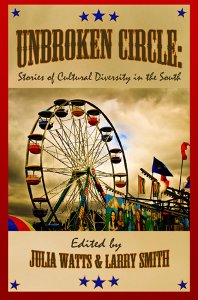
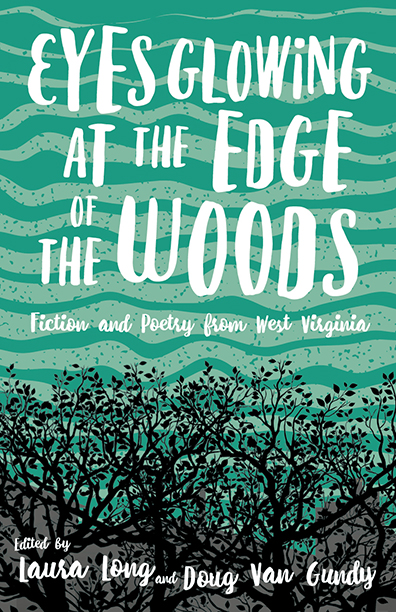
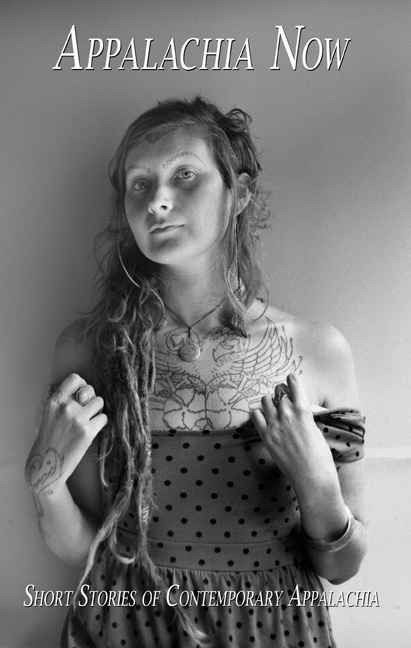


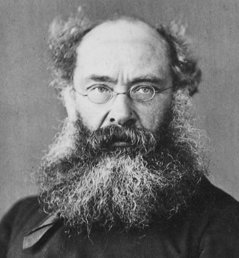






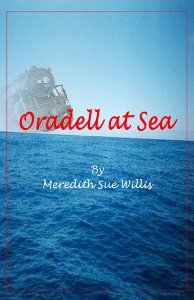
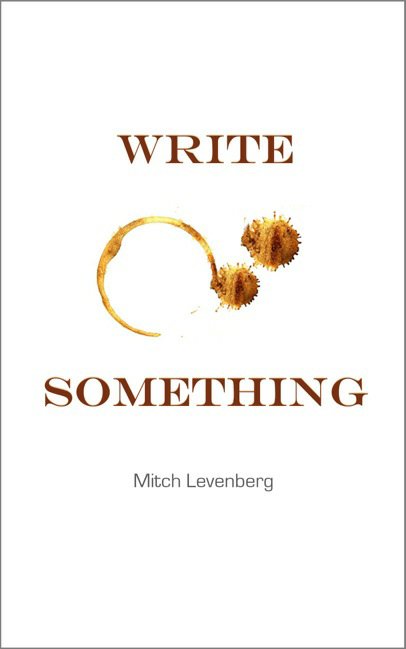
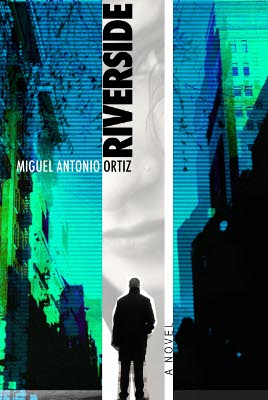

No comments:
Post a Comment